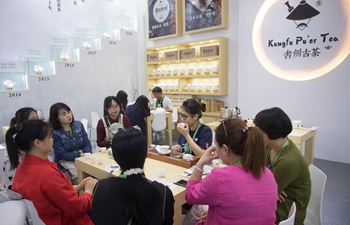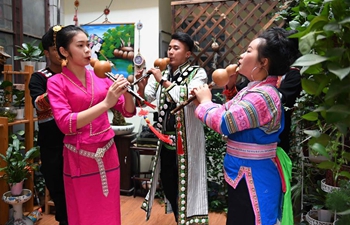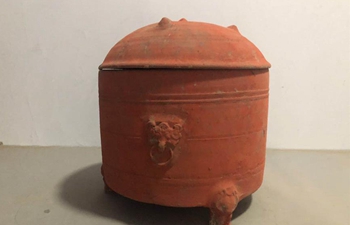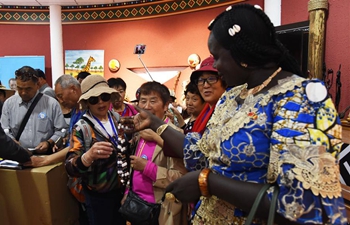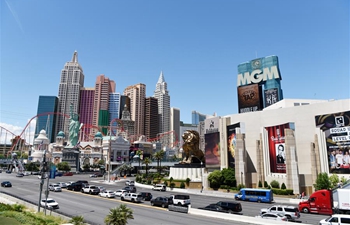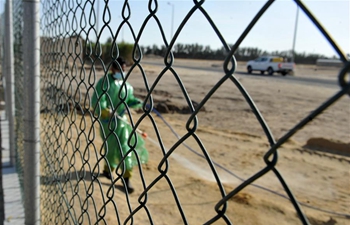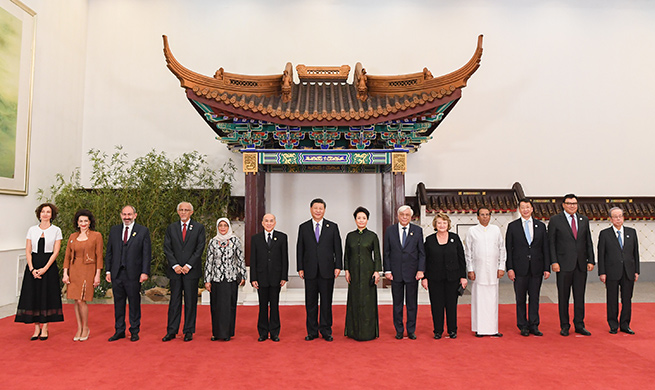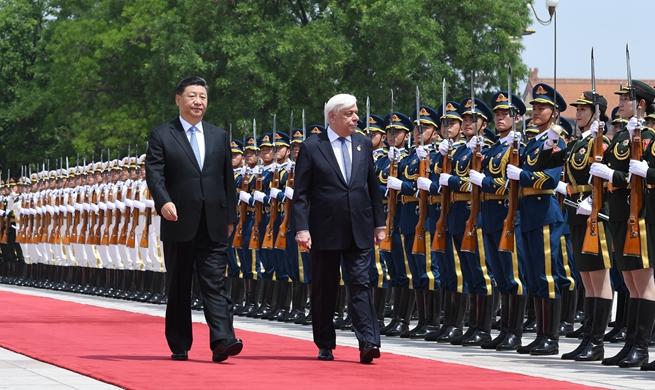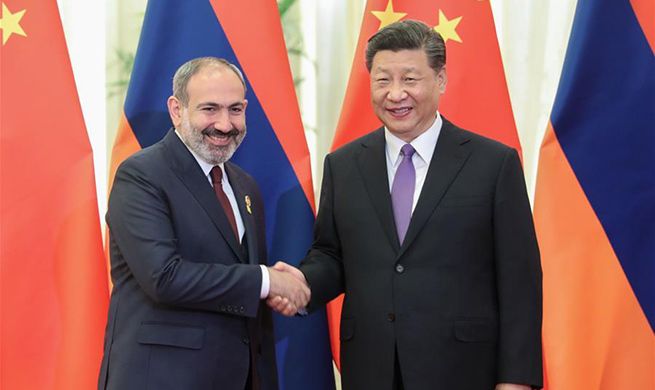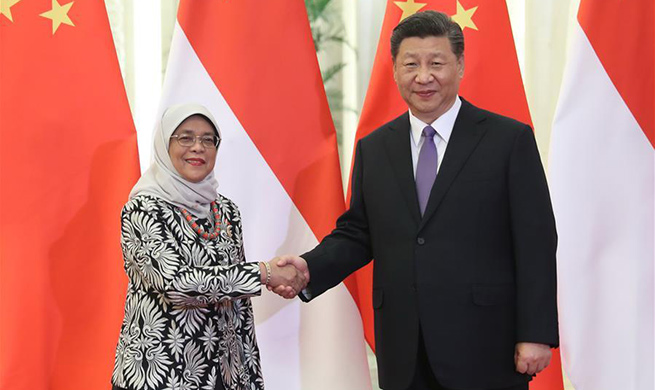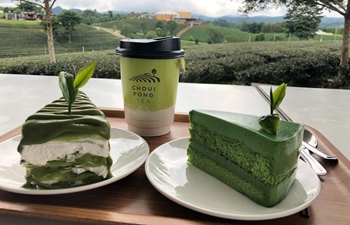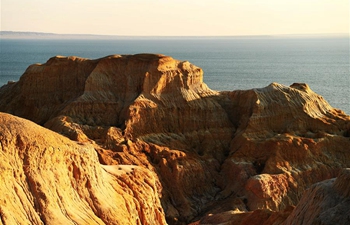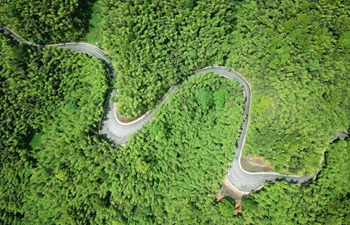by Xinhua writer Gu Zhenqiu
MACCLESFIELD, Britain, May 15 (Xinhua) -- Walking on the cobbled streets in the center of Macclesfield in northwestern England, people can see historic signs related to "silk" almost everywhere.
Atop a monument, there's a sculpture of a piece of curving silk scarf covering the mouth of a big jar. The word "silk" is enshrined in the names of buildings and restaurants -- "Silk House" and "Silktown Fryer", not to mention the nearby Silk Museum.
With a population of more than 50,000, Macclesfield, located in Cheshire, is considered the Western end of the ancient Silk Road in Europe. It is also known as the "silk capital of England".
Macclesfield, once famous for its weaving industry, is known as the "silk capital of England". On the height of prosperity, a total of 71 silk mills were in operation in 1832. The town has four museums displaying a range of information and products from that period. Among them, Paradise Mill is a working mill museum which demonstrates the art of silk throwing and Jacquard weaving to the public.
Macclesfield started to import spun silk from China more than 400 years ago, Pete Turner, clerk of Macclesfield Town Council, told Xinhua on Wednesday.
"Macclesfield used to produce the largest amount of finished silk product in the whole Europe," Turner said. "We are proud of being the Western end of the ancient Silk Road in Europe."
The ancient Silk Road routes stretched from China through south and west Asia, the Middle East, Africa, Greece, Rome, and Britain. It was an ancient network of trade routes that connected the East and West, boosting the exchanges of the Chinese and other civilizations for many centuries.
"The people of Macclesfield are very proud of this silk heritage, with many still referring to Macclesfield as the silk town and the Macclesfield Town football team being known as the Silkmen," Turner said.
At present, the word "silk" continues to thread through Macclesfield's identity. Even the town's ring road is called The Silk Road.
In most of the gift shops in the town center, about three and a half hours driving from downtown London, the real ancient Silk Road is featured on tea cups and towels. A camel and a silk yarn were printed in a towel along a sketch ancient Silk Road map that starts from China and ends in England.
By the narrow gate of her store, a woman shopkeeper was explaining to a customer: "In ancient times, camels carried goods overland to Europe along the Silk Road. And Chinese silk and tea were shipped to England across the English Channel."
"The Silk Road has been used for trade for thousands of years, and runs from Xi'an in (northwest) China to Macclesfield," reads a handwritten sentence printed on the towel. "Macclesfield became the biggest producer of finished silk goods in the world."
"I know the Silk Road," a six-year-old girl, whose name is Tracy, told Xinhua with her beaming mother by her side. "It begins in China, and camels and ships carried silk and tea to our country. It's very far and very difficult."
Turner, who has never been to China, is looking forward to a visit to the Asian country in the future and welcome more Chinese investment in the town, especially after Britain leaves the European Union. China is the source of silk that became the backbone of the town's economy over the past centuries.
"Macclesfield remains a thriving commercial town, home to global pharmaceutical and bio-med giant Astra Zeneca," he said. "Macclesfield also boasts a large number of creative industry businesses, working in design, promotion and production."
"We welcome working with Chinese organizations in the future and are happy to meet with delegates," he added.
